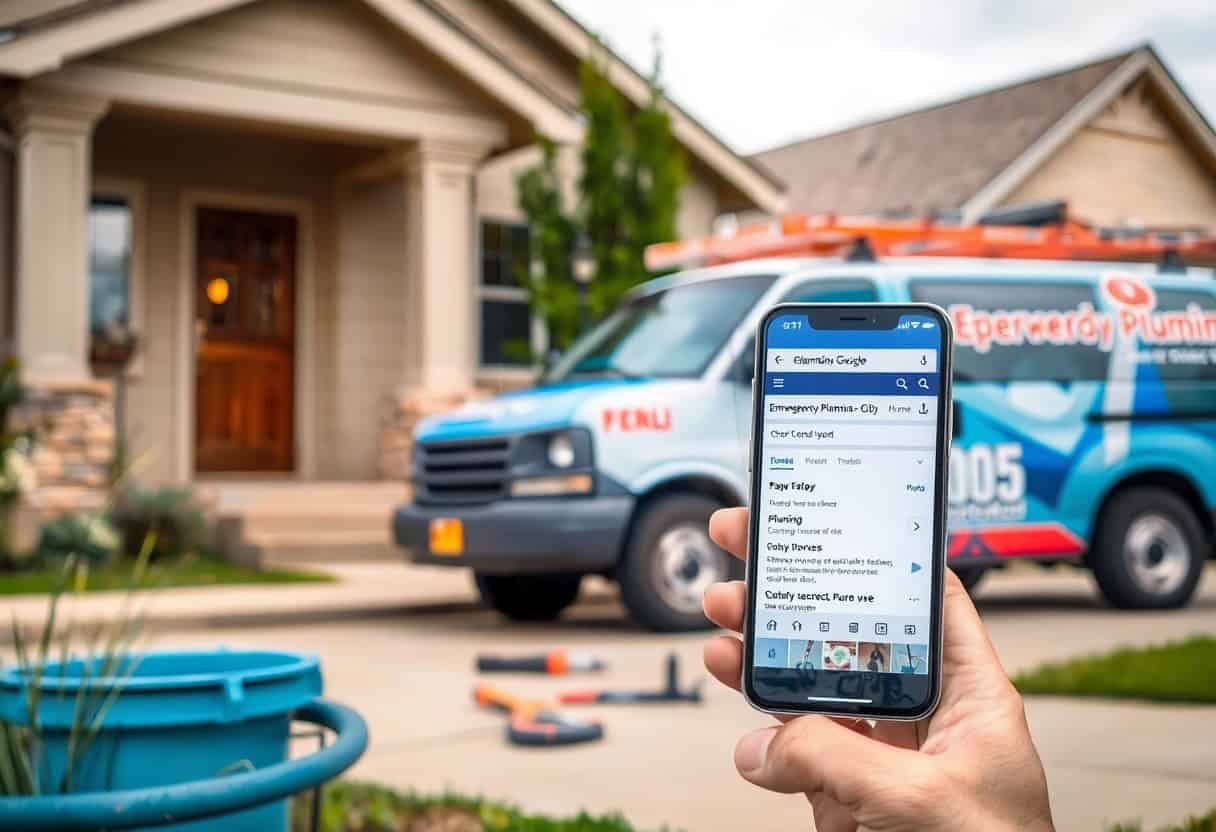Local businesses thrive on visibility, and targeting the right keywords is vital for effective local SEO. You need to identify specific phrases that potential customers in your area are using to find services like yours. Focusing on location-based terms, industry-specific jargon, and popular local landmarks can help you connect with your audience. Understanding how to optimize your content with these keywords will position your business as a preferred choice in local searches, driving more relevant traffic to your website.

Key Takeaways:
- Focus on location-based keywords, integrating city or neighborhood names into primary keywords.
- Include long-tail keywords that reflect specific services or products offered in the area.
- Utilize local business terms and phrases used by the target audience to enhance relevancy in search results.
Decoding the Local Search Intent
Understanding local search intent is key to optimizing your online presence. Consumers often conduct location-based searches when they seek immediate solutions or services. This includes queries for specific products or services available in their vicinity, such as “best coffee shop near me” or “emergency plumber in [your city].” By analyzing these search behaviors, you can tailor your keyword strategy to align with what consumers are seeking at any given moment in their local context.
The Role of Consumer Behavior in Local SEO
Your approach to local SEO must reflect the behavior of consumers in your area. They typically look for businesses that are nearby, prioritize convenience, and often rely on customer reviews. Utilizing insights from platforms like Google Trends or local directories can provide valuable information about what your target audience is searching for. Tailoring your keyword strategy to match these behaviors enhances your chances of connecting with local customers effectively.
Mapping Keywords to Searcher Intent
Mapping keywords to searcher intent involves closely examining how potential customers formulate their queries. By analyzing common phrases and questions, you can identify different consumer needs and interests. For example, keywords can be categorized into navigational, informational, or transactional intent. Understanding these distinctions allows you to not only optimize your website’s content but also to create relevant landing pages that resonate with your target audience’s immediate dynamics.
Breaking down searcher intent helps you pinpoint specific keywords that align with each type of query. For instance, someone searching for “best pizza place in [your city]” exhibits transactional intent, indicating they may be ready to make a purchase. In contrast, a query like “how to choose a local plumber” reveals informational intent, where the searcher seeks guidance rather than immediate service. By addressing both types of search intents with well-structured content and targeted keywords, you enhance your business’s visibility and drive relevant traffic to your website.
Crafting a Local Keyword Strategy
A well-defined local keyword strategy serves as the foundation for your SEO efforts. Focusing on geographically relevant terms helps you connect with local customers actively searching for your services. Begin by analyzing your target audience and their search behavior. Explore tools like Google Keyword Planner and Ubersuggest to identify popular search queries specific to your industry and locality, framing your content to resonate with community needs.
Identifying Core Keywords for Your Industry
Your industry core keywords should reflect the primary services or products you offer, coupled with local identifiers such as city names or neighborhoods. For instance, if you run a plumbing business in Austin, keywords like “Austin plumbing” or “emergency plumber in Austin” can be effective. Research competitor websites and use analytics tools to uncover which terms generate the most traffic. Tailoring these keywords to reflect your unique value proposition enhances visibility in local searches.
Leveraging Long-Tail Keywords for Niche Domination
Long-tail keywords, often consisting of three or more words, target specific searches and help refine your audience. For instance, “affordable plumbing services in downtown Austin” not only attracts readers interested in your services but appeals to a segmented market. By optimizing for long-tail variations, you can face less competition and increase conversion rates, as users searching for niche terms often have higher intent to purchase.
Utilizing long-tail keywords allows you to funnel in potential customers who are searching for specific solutions. By crafting content around phrases like “best eco-friendly plumbing services in Austin,” you tap into a targeted audience concerned with sustainability. This strategic approach not only improves your local relevance but also helps establish your authority within niche markets. Implementing long-tail keywords effectively in blog posts, FAQs, and service pages can significantly enhance your online visibility and lead to higher engagement rates.
Tools and Techniques for Keyword Discovery
Effective keyword discovery goes beyond intuition; it relies on leveraging the right tools and methodologies. Start by identifying core topics relevant to your business, then use keyword research tools to uncover valuable insights. These tools provide data on search volume, competition, and user intent, helping you refine your strategy. Integrate local modifiers into your searches to tap into region-specific opportunities. Ultimately, a well-rounded approach combining multiple techniques will yield the best results for local SEO.
Utilizing Keyword Research Tools Effectively
Keyword research tools like Google Keyword Planner, SEMrush, and Ahrefs allow you to uncover targeted phrases that potential customers are searching for. By entering seed keywords, these tools generate lists of related keywords, including critical metrics like search volume and competition levels. Refine your search by filtering for local intent or long-tail variations to ensure your keywords align with local consumers’ needs. Regularly tracking your performance metrics will help you adapt and optimize your keyword strategy over time.
Analyzing Competitor Keywords and Gaps
Analyzing your competitors’ keyword strategies reveals valuable insights into opportunities you might be missing. Examine which keywords drive traffic to their sites and assess their rankings for these keywords. Identify gaps where your competitors are weak or missing entirely; these represent unique opportunities for you to dominate the local search space. Tools like SpyFu or Moz can offer visibility into this data, providing a competitive edge by uncovering the keywords that convert and rank well.
To effectively analyze competitor keywords, start by selecting a few key competitors and utilizing tools like SEMrush or Ahrefs to gather comprehensive keyword data. Focus on high-volume, low-competition keywords that your competitors are ranking for. Explore content they’ve created around these keywords to gauge user engagement and conversion potential. This analysis allows you to tailor your content and keyword strategy, ensuring you target areas where your competitors may not be adequately addressing local search demands or user intent.
Implementing Keywords for Maximum Local Impact
Maximize the effectiveness of your local SEO strategy by strategically implementing the right keywords throughout your digital presence. This includes incorporating keywords into your website content, metadata, and local listings to enhance visibility and attract local customers. Focus on naturally blending these keywords into your marketing materials, ensuring they align with your overall brand messaging and engage your target audience effectively.
Optimizing Website Content with Local Keywords
Integrate local keywords seamlessly into your website content to boost relevance in search results. Use specific phrases that reflect your location and services, such as ‘best coffee shop in [City]’ or ‘affordable plumbing services near [Neighborhood]’. This approach not only aids in ranking higher in local searches but also addresses the needs of your community, making your site more appealing to potential customers.
Local Listings and Citation Consistency
Maintain consistency across all local listings and citations to enhance your credibility. Accurate business information—such as your name, address, and phone number (NAP)—should match exactly on platforms like Google My Business, Yelp, and Bing Places. Discrepancies can confuse search engines and customers alike, negatively impacting your visibility and trustworthiness in the local market.
Local listings and citations serve as critical touchpoints for potential customers. For instance, Google prioritizes listings that exhibit consistent NAP information across various platforms, which directly influences your search ranking. This alignment reassures both search engines and users of your legitimacy. To achieve this, regularly audit your listings and correct any inconsistencies, ensuring that your brand information remains up-to-date across directories. Consider using tools like Moz Local or Yext for efficient management of your online listings and to keep track of changes over time.

Measuring Success: The Metrics That Matter
Evaluating your local SEO efforts hinges on understanding key metrics that reflect performance. Monitoring these metrics not only reveals what’s working but also highlights opportunities for enhancement. Key performance indicators (KPIs) such as organic traffic, conversion rates, and customer engagement will guide your ongoing strategy. Regularly assessing these figures ensures you stay aligned with your regional target audience and adjust your tactics effectively to achieve desired outcomes.
Tracking Keyword Rankings and Traffic Patterns
Keeping an eye on keyword rankings and traffic patterns illuminates how well your local SEO strategy is performing. You should use tools like Google Analytics and SEMrush to assess fluctuations in rankings over time. Evaluating keyword performance will help you refine your content and adjust your strategy based on which keywords are driving traffic and which ones need more focus. Regularly analyzing traffic patterns also reveals peak engagement times and can inform scheduling for promotions.
Understanding Conversion Metrics for Local Searches
Conversion metrics are pivotal in assessing the effectiveness of your local SEO initiatives. These metrics indicate how many visitors from local searches complete specific actions, such as making a purchase or filling out a contact form. A high conversion rate signals your strategy resonates with the target audience, while lower rates may indicate a need for targeted tweaks. Tracking these numbers provides insights into customer behavior, effectiveness of your calls-to-action, and overall user experience.
Beyond surface-level tracking, examining conversion metrics for local searches offers depth to your analysis. Investigating which local keywords lead to conversions empowers you to optimize landing pages further. You might discover that specific phrases drive not just traffic, but meaningful interactions that result in sales. This insight fosters a cycle of continuous improvement, allowing you to tailor your marketing strategies to precisely meet the needs of your local audience. By aligning your keyword efforts with conversion goals, you enhance both visibility and revenue.
Final Words
Hence, you should target keywords that reflect both your industry and local audience intent. Focus on localized search terms, including location-based phrases and service-specific keywords that resonate with your community. Incorporate long-tail keywords and synonyms to capture a broader audience while enhancing relevance. Additionally, ensure that your website content, meta tags, and local listings consistently feature these keywords to improve visibility. Ultimately, understanding and implementing the right keywords will enhance your local SEO efforts and drive more traffic to your business.
FAQ
Q: What are local SEO keywords for a coffee shop?
A: Target keywords such as “coffee shop near me,” “best coffee in [City],” “local coffee roasters,” and “café with Wi-Fi in [Neighborhood].” Incorporate location-specific terms to attract nearby customers.
Q: What keywords should a dentist use for local SEO?
A: Focus on keywords like “dentist in [City],” “family dental care [Neighborhood],” “emergency dentist [City],” and “best orthodontist [City].” These keywords help patients find services in their area.
Q: Which keywords should a real estate agent target for local SEO?
A: Target keywords such as “real estate agent in [City],” “homes for sale in [Neighborhood],” “buying a house in [City],” and “local property listings.” These phrases connect potential clients with relevant local expertise.

